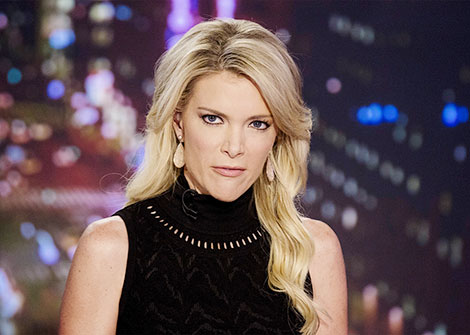In a bold and controversial statement that has ignited a significant backlash across social media and traditional news platforms, journalist and television personality Megyn Kelly recently asserted, “Drag queens don’t belong in the presence of our kids.” This remark was made in the context of a larger discussion about the role of drag culture in modern society, particularly in relation to children’s exposure to diverse forms of expression. Kelly’s comments have triggered a heated debate about parental rights, children’s exposure to different lifestyles, and the responsibilities of media figures to present balanced perspectives on societal issues.
Kelly’s assertion touches on deeply rooted societal values and perceptions surrounding childhood innocence and the appropriateness of exposing young audiences to alternative expressions of gender and sexuality. Proponents of Kelly’s viewpoint argue that drag queens, often hyperbolic representations of gender, may not provide role models that align with traditional family values. They voice concerns about children being exposed to what they consider inappropriate or adult themes, particularly at a young age, and how such exposure might influence their understanding of gender identity and norms. This perspective emphasizes a desire to protect children from perceived moral ambiguities and potential confusion stemming from diverse forms of artistic expression.
On the flip side, advocates for drag culture argue that Kelly’s remarks represent a misunderstanding of drag itself. They contend that drag is fundamentally an art form that celebrates creativity, self-expression, and inclusivity. Many in the LGBTQ+ community and their allies argue that drag performances, particularly those aimed at family audiences, are designed to entertain while also teaching valuable lessons about diversity, acceptance, and self-identity. They suggest that exposure to drag culture can provide opportunities for children to learn about the vast spectrum of human experience, fostering empathy and understanding for individuals who are different from themselves.

The division in public opinion surrounding this issue also reflects larger societal debates on gender and sexuality. As conversations about gender fluidity and LGBTQ+ rights gain momentum, the presence of drag queens in family-friendly settings, such as libraries and pride events, has become a focal point of contention. Supporters of children’s exposure to drag argue that such events can serve as safe spaces for learning, celebrating diversity, and fostering creativity. They point to the educational impact these performances can have on dismantling stereotypes and promoting acceptance at an early age, thereby helping to cultivate a more inclusive future generation.
In discussing these contrasting viewpoints, it’s important to note how Kelly’s comments have added fuel to a pre-existing cultural fire. Physicians and child psychologists emphasize the importance of open dialogues between parents and children about diversity and acceptance. They posit that children are naturally curious and may benefit from understanding various aspects of human identity, including gender expression. Critics of Kelly argue that her stance perpetuates exclusion and reinforces harmful stereotypes, which can have real-world implications for children who may identify as LGBTQ+.
As the debate continues to unfold, it is clear that Kelly’s comments have struck a nerve in a polarized media landscape. This incident has reignited discussions not only about drag culture but also about the responsibilities of public figures in shaping societal values. Questions surrounding parental rights, the appropriateness of artistic expression for children, and the role of media in advancing or hindering social progress remain at the forefront of this complex dialogue.
Ultimately, Megyn Kelly’s declaration speaks to the ongoing tension between traditional values and the evolving understanding of gender and identity in contemporary society. As more voices join this conversation, it is critical for communities to engage in constructive dialogue that respects differing opinions while seeking areas of common ground. This discourse will not only shape the future of artistic expression but also influence how upcoming generations understand and relate to the rich tapestry of human diversity.





